 I became an editor, a notable fact, and for the next year, I floundered. All I wanted was a literary life — a professional and artistic life defined by the act of creating literature, whether as a writer, a publisher of other writers, and even a curator of writers for live audiences — but achieving a dream simultaneously reveals a void. At work, I apprenticed in New York to become a better editor; at home, with newly trained eyes, I reread my own writing, saw finally my own flaws. I handed Between the World and Me to my 59-year-old father for his birthday. Later that same weekend, I wrote an essay about the experience and the gift.
I became an editor, a notable fact, and for the next year, I floundered. All I wanted was a literary life — a professional and artistic life defined by the act of creating literature, whether as a writer, a publisher of other writers, and even a curator of writers for live audiences — but achieving a dream simultaneously reveals a void. At work, I apprenticed in New York to become a better editor; at home, with newly trained eyes, I reread my own writing, saw finally my own flaws. I handed Between the World and Me to my 59-year-old father for his birthday. Later that same weekend, I wrote an essay about the experience and the gift.
After rereading the unpublishable and rejected essay, I woke up every morning at 5:00 am, brewed coffee, and sat down to write and read for three hours. I retreated from social media, and canceled plans, passed on after-work parties, readings, invitations for drinks, dinners, said no to offers to pick my brain, to brainstorm over beers. The resulting somnolence deteriorated my daily mood, and the isolation led to my accepting time’s endless assault against my writing should I refuse to work, age the partial total of wasted days. This began my year of reading, parallel with my year of rereading, contained within my year of life.



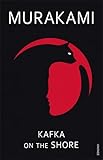
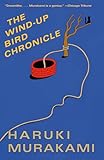 I loved Haruki Murakami — Kafka on the Shore, After Dark, The Wind-Up Bird Chronicle — and applauded 2666. I read My Struggle: Book 1, its marvelous second half haunted me for weeks, and I discovered why peers laugh at Knausgaard. I reread Why Black People Tend to Shout by Ralph Wiley, and dragged a slab of wood into our bedroom, near the window closest to the door, and placed it atop two steel trestles. I purchased a black notebook and entered with it a conspiratorial relationship without illusion in regard to my writing, that is, I no longer believed Moleskine, the brand, could make me a better writer, nor do diaries produce literature I care to read.
I loved Haruki Murakami — Kafka on the Shore, After Dark, The Wind-Up Bird Chronicle — and applauded 2666. I read My Struggle: Book 1, its marvelous second half haunted me for weeks, and I discovered why peers laugh at Knausgaard. I reread Why Black People Tend to Shout by Ralph Wiley, and dragged a slab of wood into our bedroom, near the window closest to the door, and placed it atop two steel trestles. I purchased a black notebook and entered with it a conspiratorial relationship without illusion in regard to my writing, that is, I no longer believed Moleskine, the brand, could make me a better writer, nor do diaries produce literature I care to read.
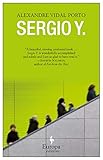

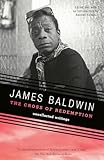 The work proved increasingly difficult with each book I opened, with every essay I began and abandoned to a boneyard on my hard drive labeled files. From my desk, I watched as my neighbors lived their lives inside unveiled apartments, and pitied those who, after two feet of snow, went about the business of exhuming their cars. I read Distant Star, The Book of Disquiet, Sergio Y., The Story of My Teeth, Sudden Death, The Ballad of Black Tom, salt. by Nayyirah Waheed, In Gratitude, rest in peace, Labyrinths, Loitering again, Between Parentheses again, The Cross of Redemption again, and others. My colleagues were curious about my regimen; they asked me if it yielded results. I unlearned toxic assumptions with respect to the essay, as a form, initially ingested by happenstance and in proximity to the Internet, where essays proliferate. I thought about the essay collection, it too as a form, and how to warp it.
The work proved increasingly difficult with each book I opened, with every essay I began and abandoned to a boneyard on my hard drive labeled files. From my desk, I watched as my neighbors lived their lives inside unveiled apartments, and pitied those who, after two feet of snow, went about the business of exhuming their cars. I read Distant Star, The Book of Disquiet, Sergio Y., The Story of My Teeth, Sudden Death, The Ballad of Black Tom, salt. by Nayyirah Waheed, In Gratitude, rest in peace, Labyrinths, Loitering again, Between Parentheses again, The Cross of Redemption again, and others. My colleagues were curious about my regimen; they asked me if it yielded results. I unlearned toxic assumptions with respect to the essay, as a form, initially ingested by happenstance and in proximity to the Internet, where essays proliferate. I thought about the essay collection, it too as a form, and how to warp it.
By spring, I lapsed — skipped a morning one week, two mornings the next — until I stopped my morning exercises altogether. I needed the sleep, and the post-winter sun ruined my writing space with its light increasing in duration and strength. The four of us — my partner and her twins — coalesced around one other, traveling to Myrtle Beach and Big Indian, chaperoning my father and his wife over the Brooklyn Bridge. I glared at the black device on my desk as my father on speaker spoke in small talk about my grandmother, his mother, convalescing since July. She is 89. The doctors seem to be doing that shoulder-shrug thing they do when their science fails them and they, in turn, signal to us, the patient’s family, not to give up hope, but to accept that the hope we have is all the hope we can expect to receive.
My 60-year-old father has still not read Between the World and Me, and there will be for him a small birthday party in New Jersey, after Thanksgiving, with home-cooked food and store-bought wine, with holiday music piped through Bluetooth speakers — Boyz II Men’s Christmas album is as old now as The Temptations’ rendition of “Silent Night” was to me when I first heard it as a child, when my aunt in black swayed near the woodgrain floor speaker, holding a half-filled glass, her grimace illuminated by the garishly decorated tree lit with reds and blues, as the party turned down, as Christmas refused to relieve her of the turmoil her liquor unlocked — and there will be some laughs, though muted by grief. I myself will not be there; I leave for Chicago and just last week, I rented a gray Dodge Dart from a sketchy Enterprise in Bay Ridge and drove to Vineland so I could attend the private viewing of my paternal uncle’s cooling body. Speaking of birthdays, he died one day before his own, at the age of 64, to cancer.
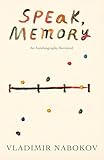 In the wake, I stand before his body in the casket, in my black suit, holding a copy of Speak, Memory, which I first read back in 2008 or ’09 but now have chosen to reread only after appearing here, inches from the coffin, the first time. The anachronistic book grounds me here, the second time, after I first witnessed my uncle’s evaporated body, scheduled for cremation tomorrow night, when I wondered how and why his final moments left a peaceful look on his graying, gaunt, sheared face. (I remember him for his gargantuan beard, gone now from real time.) On a round wood table beside the casket are his black leather cowboy boots doubling as vases for two bouquets of deciduous red and yellow roses.
In the wake, I stand before his body in the casket, in my black suit, holding a copy of Speak, Memory, which I first read back in 2008 or ’09 but now have chosen to reread only after appearing here, inches from the coffin, the first time. The anachronistic book grounds me here, the second time, after I first witnessed my uncle’s evaporated body, scheduled for cremation tomorrow night, when I wondered how and why his final moments left a peaceful look on his graying, gaunt, sheared face. (I remember him for his gargantuan beard, gone now from real time.) On a round wood table beside the casket are his black leather cowboy boots doubling as vases for two bouquets of deciduous red and yellow roses.
My grandmother is not in attendance, her frail body yoked to life-saving machines, to bags of fluid to keep her hydrated and sustained, since she refuses to eat, and I question her memory. When I visited her in the hospital hours before the wake, I did not mention my uncle’s death. Instead, we watched the news together, a local affiliate broadcasted from Philadelphia; the same black anchor from my childhood, he hasn’t aged a single day, I said to her. I knew she was told of her son’s death, but I was unsure if she remembered — doctors and family members reported with greater frequency lapses in her short-term memory — and I did not have the heart to break her heart all over again had she forgotten, so I said nothing, and softly held her hand.
Lies and memoirs, said Roberto Bolaño, get along swimmingly. I feel accused of a crime, even though, strictly speaking, I do not consider myself a memoirist. Once fascinated by memoirs, I now avoid but not because of banality, that is, the requirement from critics that a memoirist’s life be thrilling, or extraordinary. I am as physically close to my uncle’s body as I’m willing to get, and no closer. I don’t recognize him, my living brain having to downshift to death, because he should be breathing, the movement registers as a detail about him, a major one easily overlooked until final exhalation. “Symbols and Signs,” a short story, first introduced me to Vladimir Nabokov; the insubordinate sentence first and finally revealed itself to me, through Nabokov; Literature marks the spot where generations of writers faithfully leap off, expecting to fly, only to slam face first into a pile of human bodies, but Vladimir the asshole soared, and writers will forever read and hate him, never understanding how he defied the laws, and why not them.
The last time the boy had tried to do it, his method had been, in the doctor’s words, a masterpiece of inventiveness; he would have succeeded had not an envious fellow-patient thought he was learning to fly and stopped him just in time. What he had really wanted to do was to tear a hole in his world and escape.
A story circulates the wake: When asked whether or not he had money for his own funeral, my uncle laughed and replied “I’ll be dead and it’ll be someone else’s problem,” and laughed again. That he laughed twice pleases me. Knowing my uncle, he was terrified of death but never beguiled by it; his callous stance toward the living in the face of his own demise seems to me a pragmatic, if heartless one. Speak, Memory describes the nothingness that bookends the life cycle of every organism as two black voids, fore and aft. A local preacher and friend to my cousin, the son of the deceased, says now in the wake, at the lectern, that in his final hours my uncle accepted the Lord into his life — I am skeptical, but if he was pragmatic enough to leave behind a funereal bill for the family to settle, then indeed he would wait until the last minute to resolve a situation that, prior to, existed but didn’t press itself upon his life. When I face the second black void, aft, I might rethink my position on the case of Me v. God, so to hear about my uncle’s late-hour, deathbed capitulation to Christ only makes the need for me to find him all the more urgent. Where is my uncle now?
The prison of time, said Nabokov, is spherical and without exits. Speak, Memory maps a human life during societal deterioration, a process relevant to the new climate. Nabokov’s home was an idyllic, plentiful wonderland centered inside a disturbed Russia approaching back-to-back revolutions. Nabokov’s childhood home was torched, leaving behind the iron staircase fashioned by his paternal grandfather; Vladimir, his mother, and his siblings fled for their lives to southern Crimea, while his father, Vladimir Dmitrievich Nabokov, remained behind, and was later assassinated in Berlin. The life of my family, said Nabokov, had completely changed; “we were absolutely ruined…the complete curbing of the public’s minds was achieved…in no time after the main contingent of the intellectuals had escaped abroad, or had been destroyed…the loss of my country was equated for me with the loss of my love.” Men who write about their homes should have their own wing inside a burning library, but I also believe in literature’s expanding universe, how, despite one million stories, we’ll read another story, and one more, year after year.
The wake is sparsely populated with family, some skeletal remains of fringe friends, a dozen former coworkers, a few lovers. It’s unclear how long ago he was diagnosed, though we suspected for years: My uncle was a nurse, and so is my father, and three or four of my aunts, and twice as many cousins, not to mention my grandmother, retired; his family knew his prognosis just by observing him. I sit with my right leg crossed over the left, Speak, Memory and my black device in my lap, as I stare at the casket, thinking about my year of reading and the black bolt above my childhood home in Newfield, adjacent to Vineland, captured with my device’s camera. I pull over to the side of the road, in front of the house my family no longer owns, and snap a few photos from the rental car. The November sky reminds me of the dulling bright eyes of a black dog thrashed by a heartless owner retarded by mediocrity. My father and his brother play each other in a game of tennis; with afros, they ride on motorcycles, side by side, down route 55. My brothers and I slip out the wake for a quick cigarette in the parking lot as the nearby cathedral bell tolls nine. The seats in front of me are empty, so I have a direct line of sight to my uncle’s face. My grandmother touches the screen fastened to my wrist; the nurses have removed her rings; on a rolling tray next to her hospital bed is a framed photo of her husband, my uniformed grandfather, who died 363 days before my birth. From the corner of my left eye, past my black eyeglasses frames, I see my father and his wife, frozen, clutching each other as they gaze at his brother, thinking god knows whatever those new to senior citizenship consider during a wake pre-cremation. My uncle drives an oxblood stick-shift Corvette convertible and parks it outside the strip club from where he plucks a date to escort him to the family barbecue. There she stands, the white dancer in black tights, and there we stand, the black judges holding red cups, bound by blood. Our scientific laws dictate that upon death, for maximum efficacy within, and least disquieting entry into, the loop, our bodies are to be burned and transformed into the ash we, for centuries before Reform, tried to hide with shame during harsh, white winters.
More from A Year in Reading 2016
Don’t miss: A Year in Reading 2015, 2014, 2013, 2012, 2011, 2010, 2009, 2008, 2007, 2006, 2005










